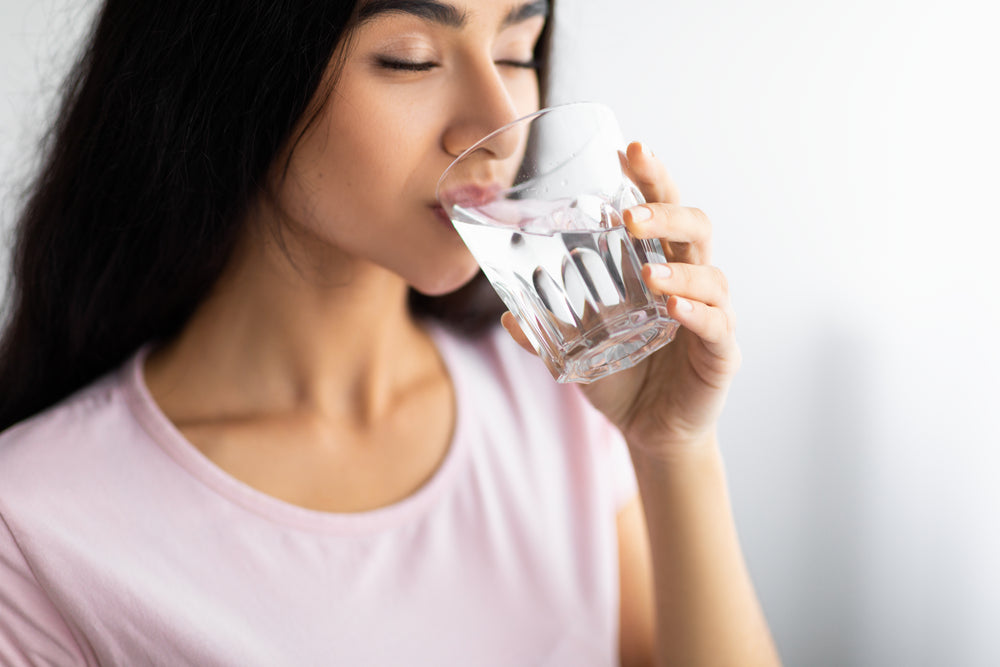Why Is Staying Hydrated Important After Bariatric Surgery?
Water is critical anytime, but even more so after bariatric surgery. Still, some bariatric surgery patients do not drink enough, whether because of challenges to drinking or because of a lack of emphasis on its significance. Here are some reasons why it is important to stay hydrated after bariatric surgery, plus tips on making it easier.
Why Water Is the Most Critical Nutrient
You can live without food or other nutrients for weeks, but you can only survive for a couple of days without water. Water is the most abundant molecule in your body, making up well over half of your body weight. Even mild dehydration can lead to dehydration headaches, trouble focusing, and an increased risk of accidents.
Additional Significance of Water for Bariatric Surgery Patients
As important as water is for everyone, it is even more of an issue for bariatric surgery patients. Though you may hear a lot about troubles with protein consumption or complications of bariatric surgery, dehydration is one of the top reasons why bariatric surgery patients go to the emergency room after leaving the hospital after surgery. It’s usually preventable just by drinking more water.
Water helps bariatric surgery patients in other ways, too. Here are some examples.
- Water help maintain metabolism so you can lose weight more easily.
- Thirst can be mistaken for hunger, and drinking more eliminates that confusing sensation.
- Staying hydrated can help you heal faster.
Staying out of the ER and losing more weight can be very motivating reasons to drink enough water!
How Much Water Per Day After Bariatric Surgery?
What is the goal for water consumption after bariatric surgery? It is about 64 ounces for most patients. You may need more if you sweat heavily or the weather is warm.
If you’re panicking because you dislike water or you think there’s no way you can possibly drink enough, take a deep breath. Other liquids can count, too! These are some examples.
- Low-sodium broth or bouillon
- Green, black, white, or herbal tea
- Coffee (watch for calories from creamer and sweeteners)
- Sugar-Free Protein Shakes and other Protein Drinks, such as Protein Cocoa or Protein Smoothies
The trick is to choose liquids that are low in calories or are calorie-free instead of having sugary beverages, such as sodas, sweet tea, and flavored coffee beverages. Those probably aren’t on your bariatric diet anyway, so there should be no worries here!
Tips for Staying Hydrated After Bariatric Surgery
Staying hydrated can be challenging for many bariatric surgery patients, but there are ways to make it easier. Here are a few of them.
A timer can remind you to drink water when you might otherwise forget, such as if you’re busy or you’re just not used to drinking all the time. You might plan to drink 4 ounces every half-hour, or choose another schedule. Your phone timer can help with this.
It’s easier to remember to drink when your water bottle’s right next to you, and it’s easier to drink when your bottle’s there, too. Be sure to keep it full, and you’ll find it easier to drink enough.
Your body changes after bariatric surgery. You might experience less thirst. You have a smaller stomach pouch, which means you can drink less at a time. This means that you need to be more deliberate about your water consumption instead of just playing it by ear.
You are limited in the times you can drink because you are not supposed to drink your liquids during meals after bariatric surgery. That means you need to plan your fluid consumption for times other than mealtimes.
How much water are you having? Tracking your intake with an app can help you know. It also helps motivate you to get more.
In addition to using an app, you can get water bottles that help you track. They may be marked on the side so you know what your goal is or how far you have to go.
Avoiding alcohol is already a rule for bariatric surgery patients. It’s high in calories, it can lead you to take in more high-calorie foods, and you’re more likely to get intoxicated quickly with less alcohol consumption. Another good reason to avoid alcohol post-op is that it can dehydrate you. It is a diuretic, which means your body loses water when you drink.
Some people never liked plain water, and some bariatric surgery patients stop liking it after surgery. Or, you might just get sick of it. If you need something other than plain water, ice water can help. You can also try natural flavoring agents, such as slices of cucumber, sprigs of mint or rosemary, wedges of lime or lemon, or slices of strawberry, peach, or orange.
You can also try flavored water enhancers. They’re usually low in calories or calorie-free, and they come in great sugar-free flavors. They also tend to come in portable dropper bottles that you can take anywhere.
However you choose to flavor your water, be sure you’re not replacing water with high-calorie beverages. They’ll spike your blood sugar, get in the way of weight loss, and possibly cause complications such as dumping syndrome.
Dark-colored urine can be a sign of dehydration. Clearer urine usually means you are hydrated. Check your urine when you go to the bathroom for another sign of how much fluid your body needs.
Bariatric surgery was a choice for your health and quality of life. Staying hydrated is, too. Keep thinking of the benefits of drinking more water, and you may have a better chance of achieving it.
Bariatric surgery is a life-changing experience that also affects your need for water. It becomes even more crucial to drink water after bariatric surgery, and you can get in more water with the above tips. The BariatricPal Store can help with Hydration Flasks, Water Enhancers, and other support to help you stay on track.










































































































